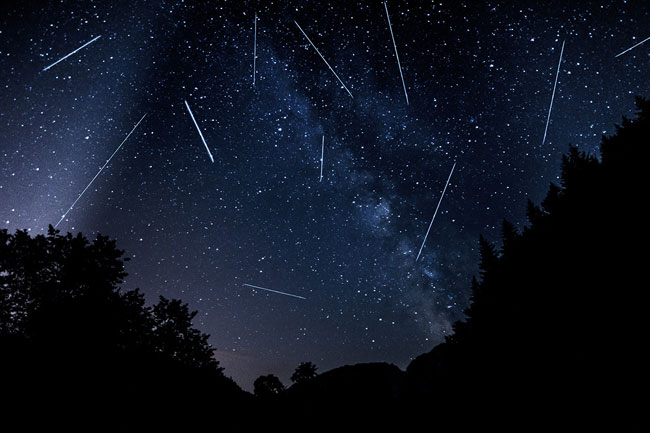Perseid meteor shower: Sri Lanka’s northern sky to dazzle with midnight light show tonight
August 11, 2024 06:43 pm
The most anticipated meteor shower of the year- the Perseids - will be visible to Sri Lanka tonight (11), after midnight or pre-dawn light hours.
Space Scientist Gihan Weerasekara said this dazzling display will clearly appear to naked-eye from a plain ground on the northern sky of Sri Lanka from 12.00 midnight until the dawn.
Streams of light and color will travel across the sky while explosions of fireballs linger, leaving behind even brighter streaks than the meteor trails from the Perseids passing through the atmosphere.
Visible annually from mid-July to September 1, the Perseid meteor shower is set to peak between Sunday and before dawn Monday this year. Up to 100 meteors are expected per hour, moving at a speed of 133,200 miles per hour (214,365 kilometers per hour), as per reports.
The meteor shower’s name comes from the location in the sky that it appears to originate from — what’s called the radiant — near the constellation Perseus. The constellation can be identified with a stargazing app, which can help viewers pinpoint the shower’s starting point.
Bill Cooke, head of NASA’s Meteoroid Environment Office, described the Perseids as the richest meteor shower of the year because of the bright fireballs. It’s “the closest thing each year to a celestial fireworks display,” Cooke said.
How to view the Perseids
NASA’s Cooke recommends four tips for optimal viewing. You don’t need instruments such as a telescope or binoculars, but find the darkest sky you can without light pollution. If you can, lie flat on your back and look straight up, taking in as much sky as possible. Give your eyes 30 to 45 minutes to adapt to the dark. “Don’t look at your cell phone, because that screen ruins your night vision, and it takes your eyes off the sky,” Cooke said.
The best time to view the shower is after midnight around 2 a.m., when the source of the meteors will be the highest in the northeastern sky, both experts said. “Mother Nature doesn’t respect people’s sleep,” Cooke joked.
--With agencies inputs












